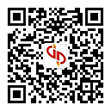If we were asked exactly what we were doing a year ago, we should probably have to say that we could not remember. But if we had kept a book and written in it an account of _1_ each day, we should be able to give an answer _2_ the question.
It is the same in the history. __ have been forgotten because we do not have any written account of them. Sometimes men _4_ a record of the important happenings in _5_ country, _6_ often it was destroyed by fire or in a war. Sometimes there was never any written record at all because the people _7_ did not know how to write. For example, we know _8_ the people who lived in China 4,000 years ago, because they could write and _9_ written records for these who live _10_ them. But we know _11_ nothing about the people who lived even 200 years ago in Central Africa, because they _12_.
Sometimes, of course, even if the people cannot write, they may know something of the past. They have learned about it from _13_ people, and often songs and dances and stories have been made about the most important happenings, and these have been sung and acted and told _14_ many generations (後代)。 Most people are proud to tell _15_ their fathers did in the past. This we may call “remembered history”。 _16_ has now been written down. It is not so exact _17_ so valuable to us _18_ written history is, because words are much more easily _19_ when used again and again in speech than copied in writing. But _20_ no written records, such spoken stories are often very helpful.
[单选题]
A. what to do
B. what we did
C. how to do
D. how we did
[单选题]
A. for
B. in
C. on
D. to
[单选题]
A. all things
B. Many things
C. More
D. Much
[单选题]
A. did keep
B. should keep
C. would keep
D. were keeping
[单选题]
A. our
B. your
C. their
D. his
[单选题]
A. still
B. but
C. even
D. or
[单选题]
A. when and where
B. of when and where
C. that time and place
D. of that time and place
[单选题]
A. a good deal about
B. a lot of about
C. many
D. much
[单选题]
A. left
B. gave
C. leave
D. send
[单选题]
A. before
B. after
C. later
D. for
[单选题]
A. almost
B. most
C. at most
D. mostly
[单选题]
A. have not learned to write
B. have learned to write
C. had learned how to write
D. had not learned to write
[单选题]
A. older
B. the oldest
C. outside
D. most
[单选题]
A. by
B. about
C. for
D. within
[单选题]
A. how
B. which
C. that
D. what
[单选题]
A. Some of it
B. Some of them
C. All of it
D. Many of them
[单选题]
A. and
B. or
C. yet
D. even
[单选题]
A. as
B. that
C. such
D. so
[单选题]
A. moved
B. forgotten
C. recited
D. changed
[单选题]
A. where
B. there
C. where there are
D. where they are

 原创试题专区
原创试题专区 开通学校服务
开通学校服务





